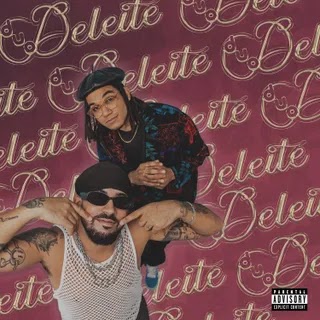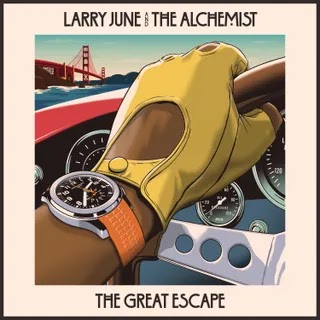The soundtrack to the Shaka King-directed film, featuring heavyweights like JAY-Z and Nas alongside newer stars like Polo G and Pooh Shiesty, exploits Hampton’s image to peddle liberation-lite Billboard hits.
Fred Hampton was a galvanizing, historic figure. Even through weathered footage, choppily pieced together on YouTube, the Black Panther Party leader’s unyielding flame is present and palpable. Take this clip, for example. In lighting that nearly renders him a shadow and muddy audio, his words sometimes come out so fast that they roll into each other like an avalanche. But by the end it’s impossible not to feel moved to act in service of the people. You may not even know who “the people” are, but after listening to the former Illinois chapter chairman, you certainly want to find out.
Though the Black Panther Party officially dissolved in 1982, their cultural influence has shown up consistently in the years since, particularly in hip-hop. Thanks to Beyonce’s black leather and beret at the 2016 Super Bowl halftime show, the Panthers reached new levels of visibility. Her performance, while commanding, did little to transmit the actual politics of the revolutionary group. Prior to this a number of films, documentaries and YouTube clips have filled in the contextual gap that music and outfits couldn’t bridge, but major crossover appeal for the Panthers’ ideology has remained elusive.
Director Shaka King’s latest film, Judas and The Black Messiah, aims to find a balance between appealing to the mainstream and representing the party’s radical ideals. The film centers around the FBI’s plot to weaken and ultimately kill Hampton in Chicago. Told through the dueling lenses of Hampton and Bill O’Neal, the informant recruited by the federal agency to infiltrate the Chicago chapter, the film intentionally reads more as a crime drama than a portrait of Hampton. In a recent interview with the Atlantic, director King frankly stated, “If you don’t give a fuck about the Black Panthers, or any history, you could still be like, ‘I kind of want to see that, though. Because I like The Departed.’ This is an incredibly commercial movie.”
It seems the same approach was taken with the film’s “inspired by” soundtrack (none of the songs are actually in the film), which boasts a who’s-who of hip-hop and R&B’s brightest stars. With superproducer Hit-Boy and executives Dash Sherrod, Ryan Coogler, and Archie Davis at the helm, old heads like JAY-Z and Nas stand alongside current heavyweights like Lil Durk and H.E.R. and more recent breakthrough artists like, Polo G and Pooh Shiesty. As an exercise in commercial appeal, the A&R is masterful. Hampton’s hometown of Chicago is represented through its most popular figures, while bigger names and hip-hop holy grails (a verse from the late Nipsey Hussle, a whole new Rakim track) could guarantee the album’s success.
But as a tribute to Hampton, the album, like the film, misses the mark. Hampton was a staunch anti-capitalist who took inspiration from Marx, Lenin, Che and Mao. He was someone who had no qualms tearing down Black capitalists and reaching across the color lines to unite all working class people. It’s hard to believe that the bulk of the project was inspired by anything that Hampton said. Instead, it exploits his image to peddle liberation-lite Billboard hits over anything remotely revolutionary.
It’s not all terrible. The most memorable track, out of a whopping 22, comes from relative unknown Nardo Wick. The young rapper’s stark delivery—reminiscent of 21 Savage—on “I Declare War” most closely mirrors Hampton’s fearlessness. Chicago rap stars G Herbo, Bump J and Polo G rail earnestly against police brutality, racism, and the violence and poverty that plagues their hometown. On “No Profanity,” Gucci Mane signee Pooh Shiesty makes decent use of a beat that samples Hampton’s voice in a marathon verse that compellingly considers an increasing threat of betrayal. Rakim’s bonus track lovingly recounts the facts of Hampton’s life, although the cloudy quality of his vocals are distracting.
Elsewhere, would-be standout moments from Rapsody, Lil Durk, Smino, Saba, and H.E.R. languish under sleepy production and poor sequencing. Black Thought provides some capital-R raps on the wannabe protest anthem, “Welcome To America,” featuring singers C.S. Armstrong and Angela Hunte. But the song’s obvious engineering—marching drums and a churchy vocal sample—make it feel formulaic and empty. Cozy love songs courtesy of BJ the Chicago Kid and SiR play to both artists’ strengths but feel disconnected from the album’s supposed theme and the film’s minor love story.
There are quite a few moments that scan more like an ego trip for hip-hop’s biggest names, who seem happy to latch onto Hampton’s image while failing to reflect his working-class first views. Yes, it’s refreshing to hear Nas call out the suspicious surveillance tactics of big tech on “EPMD.” Similarly on “What It Feels Like,” JAY-Z’s acerbic bars on the Capitol Riot are jolting. But they soon lose credibility when backed up by tired motifs of opulence and braggadocio from the former’s “condos in different time zones” to the latter claiming himself as a “black messiah” despite his open embrace of capitalism. A newly released Nipsey verse might’ve saved “What It Feels Like” were it not eight years old and obviously unrelated to the project. With “Broad Day,” it’s unclear if Hit-Boy even watched the film. The song centers around a clumsy hook where even he confirms he should stick to producing (“I should A&R the game, pick you niggas beats”). Dom Kennedy and A$AP Rocky seemed to have also missed the pre-screening as one confusingly offers his own unrelated personal reflections over blissed out G-Funk and the other distastefully whines about the downsides of fame and feeling overlooked. With lackluster lines like “How they got 20/20 vision but don’t see a nigga vision till 2020,” Rocky is not making a strong case for himself.
Radical politics is not within the purview of Hollywood, and the film made that abundantly clear by focusing more on the story of the informant than that of Fred Hampton. But soundtracks, though not a perfect medium, are often opportunities to address the shortcomings of a film. This soundtrack could’ve featured the same exact cast but held everyone to task lyrically. It could have attempted to reflect Hampton’s Rainbow Coalition by inviting lesser-known Latinx or Indigenous artists. It could have taken greater risks with production and style—Noname and Kendrick Lamar are notably absent—to reach closer to Hampton’s revolutionary ideas. Instead it remains in a lukewarm present, with no consideration of what a revolutionary future could look like. In an undated speech printed in the New York Times in 1971 Hampton declared, “If you ain’t gonna do no revolutionary act, forget about me. I don’t want myself on your mind if you’re not gonna work for the people.” We can only hope that whoever undertakes the next Hampton-inspired project will take those words to heart.
















0 comments:
Post a Comment